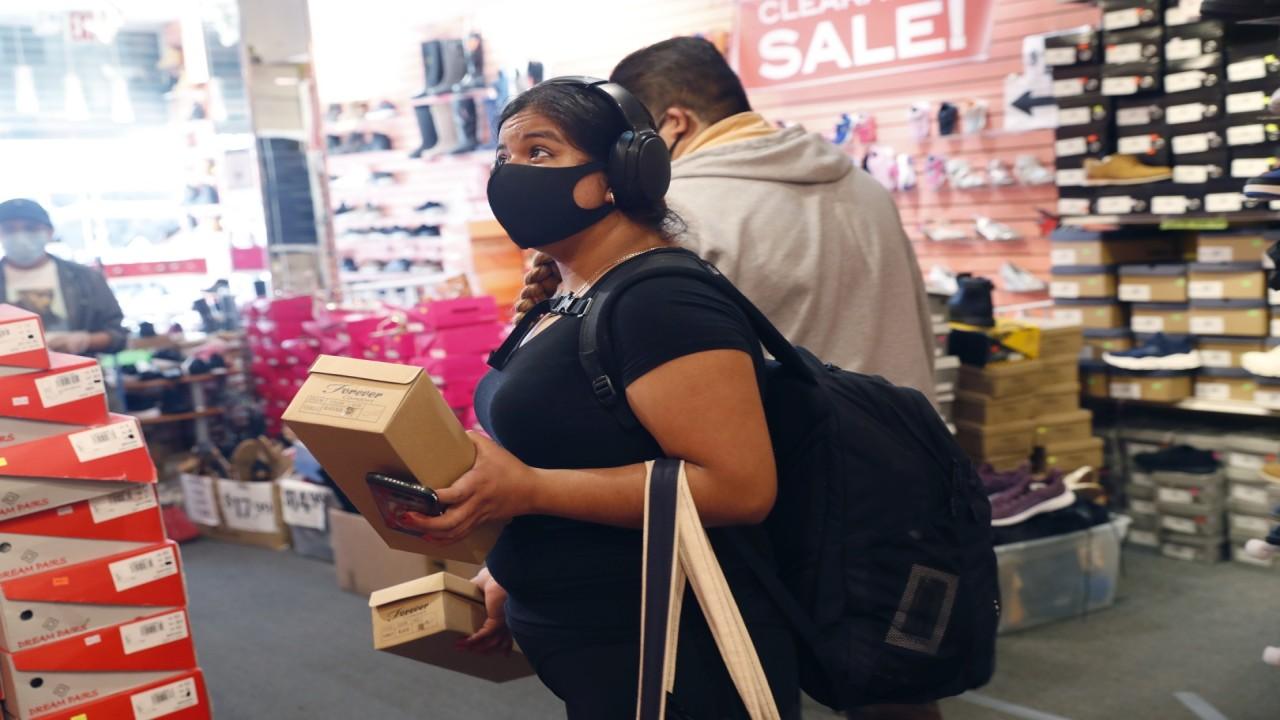How can the stock market soar with rising unemployment?
The S&P 500 index has rallied by nearly 30% since March 23, a big upward swing considering grim unemployment numbers
Get all the latest news on coronavirus and more delivered daily to your inbox. Sign up here.
We've all seen the numbers -- more than 30 million people have filed for unemployment so far during the coronavirus pandemic, and this is certain to cause the near record-low unemployment numbers we've seen recently to rocket higher.
Well, that's exactly what is expected to happen. According to the Congressional Budget Office (CBO), unemployment is expected to spike from 3.8% in the first quarter of 2020 to 14% in the second quarter. Unemployment is expected to spike to 16% in the third quarter before retreating to 11.7% in the fourth quarter. Perhaps the most alarming statistic to long-term investors is that the CBO expects unemployment to remain elevated at a 10.1% level through 2021 and only decline to 9.5% by the end of 2021.
COMPANIES CUT 'UNPRECEDENTED' 20.2M JOBS IN APRIL, CRUSHING PREVIOUS RECORD
The point is that if you think things will just snap back to normal after the second quarter -- think again.
Why is the stock market rallying?
Since bottoming on March 23, the S&P 500 index has rallied by nearly 30%. To be sure, it's still roughly 15% down from its pre-crash highs, but this is a big upward swing, especially considering the grim unemployment projections.
WHY STOCKS MAY RECEDE TO CORONAVIRUS LOWS AS RALLY LOSES TRACTION
The short explanation of why the market has rocketed higher over the past six weeks is that the stock market is a forward indicator, meaning that it derives its value from expectations of how things are going to be in the future. Without turning this into an economics class, stocks get their value from the present value of all their future expected cash flows.

(Associated Press/iStock)
Well, quite a bit has happened since the March 23 lows that has changed the expectations. To name the highlights:
CARES Act
The Coronavirus Aid, Relief, and Economic Security Act, known as the CARES Act, was signed into law on March 27. This provided funds for the stimulus checks that have been going out; a $600 weekly bump to unemployment benefits; small business loans through the Payroll Protection Program (PPP); and billions in loans and grants to struggling industries like airlines. I think we can all agree that the future economic projections are far better than they would have been if no such legislation had been passed.
The curve has flattened
Daily new coronavirus cases have clearly peaked in many parts of the United States and have plateaued in the nation as a whole. And hospitals in most parts of the U.S. are well under their capacity. While we're a long way from putting the outbreak behind us, it's far less likely to overwhelm our healthcare system than it was in late March. Plus, the flattened curve has prompted some states to begin reopening their economy, which could help put people back to work and help the economy start to rebound sooner than expected.
DEMS EXPECTED TO UNVEIL SWEEPING NEW RELIEF, BUT GOP HESITANT ABOUT SPENDING
Positive news on virus treatments
At the time of the March lows, there was simply no good news when it came to treating the virus itself. While we still don't have a cure or vaccine, we did get some good news when it was revealed that Gilead Sciences' (NASDAQ:GILD) remdesivir drug was found to be effective in treating severely ill COVID-19 patients in clinical trials. The drug has since received emergency-use authorization from the FDA.
The Fed
The Federal Reserve certainly hasn't been afraid to use the tools in its arsenal to help bolster the economy. It had already slashed interest rates to zero before the market hit bottom, but since the March lows, the Fed announced an unlimited quantitative easing program as well as a $600 billion "Main Street" business lending program.
SOCIAL SECURITY BENEFIT CUTS MAY BE COMING, BUT HERE'S WHY THEY MAY NOT HURT YOU
The point is that the economic projections certainly look grim. The CBO forecast discussed earlier projects a 39.6% decline in real GDP in the second quarter and a 23.5% rebound in the third, and forecasts a return to GDP growth with 2.8% growth in 2021. Without these four factors, it's fair to say that these projections would be much worse.
Which sectors could suffer most from prolonged unemployment?
It's difficult to quantify the effects of unemployment on the stock market, as economic growth and employment are two different concepts. Having said that, there are some sectors that could suffer more than others if unemployment stays elevated through at least the end of 2021 like the CBO projects.
The financial sector is one big example. For one thing, the CBO projections call for interest rates to stay near record lows for the foreseeable future, with a 10-year Treasury yield of just 0.7% in 2021. Banks profit by loaning money and collecting interest, and with low rates, profit margins could be squeezed. And more importantly, elevated unemployment could also lead to a steady wave of loan defaults, which could lead to billions in losses for banks until the economy normalizes.
Consumer discretionary stocks are perhaps the most obvious sector that could be affected. Companies that sell things that people want (as opposed to things they need) tend to be more sensitive to adverse economic conditions.
What should investors do
One key point that investors need to keep in mind is that these are just projections. Although we've learned far more about the novel coronavirus than we knew a few months ago, there's a lot we don't know. Nobody can tell us for sure when the pandemic will end, whether a second or third wave of infections will come, or what each individual state will do with the timetable of reopening their economies.
GET FOX BUSINESS ON THE GO BY CLICKING HERE
The CBO unemployment projections included assumptions of social distancing continuing through June and diminishing after, and included the possibility of a resurgence of infections. Depending on how the situation plays out, the actual unemployment figures (especially as far out as 2021) could be significantly higher or lower.
CLICK HERE TO READ MORE ON FOX BUSINESS
The best course of action for investors is to focus on quality. Buying the stocks of well-run businesses with solid balance sheets is always a great long-term strategy, and this is especially true in uncertain times. Warren Buffett says that "all there is to investing is picking good stocks at good times and staying with them as long as they remain good companies." And now is the time to really put those words into action.




















